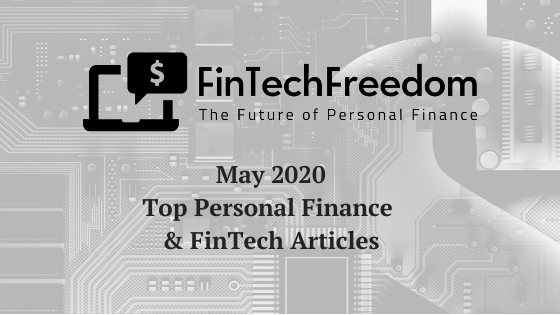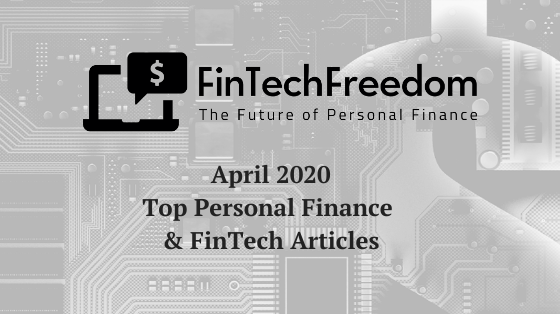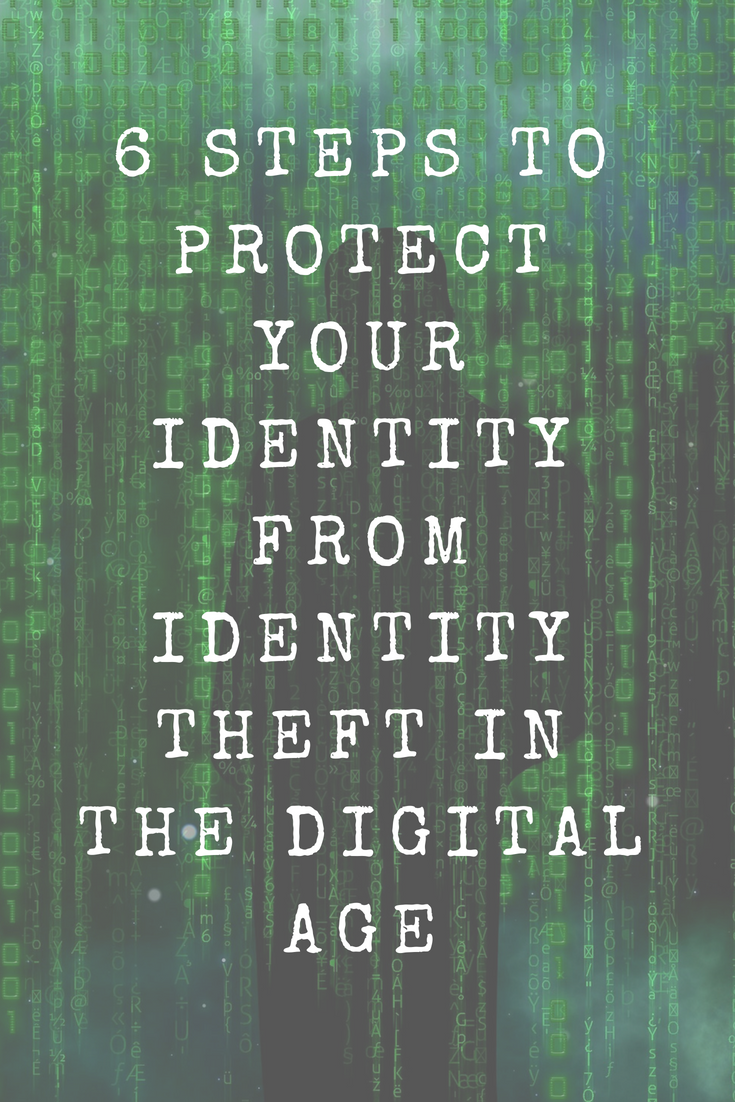What would happen to everything you own if you were to pass away tomorrow? Do any of your family members or loved ones know where your online passwords are for everything? Do they have access to your Facebook account or to your bank account? Or would they be left scrambling to piece everything together? Given the nature of our digital world, today, as well as the privacy, security and identity theft precautions you must take, the last thing you want is a notepad in a drawer somewhere. What would happen if it was taken or copied? Or, if your home were to burn down? Estate planning is essential and by reading further you will learn how to be prepared for what is inevitable!
This article outlines the best way to say “I Love You” to your loved ones.
Why Everyone Needs An Estate Plan
The purpose of this article is to not only lay out the basics of an Estate plan and make you aware of why everyone needs an estate plan but also to provide you with some valuable digital options when it comes to your assets. Below, you will find solutions that exist to make it simple for you to handoff your assets after you pass away.
Today, 55% of people die without a will or a trust. What this means is that when you die your loved ones have little to no say over how what you own and have saved is managed upon your passing.
If you are a business owner there are additional considerations you should consider when it comes to your estate planning. I would encourage you to read “What Would Happen to My Online Business If I Died” for additional information on this important topic.
High Level Look At The Estate Planning Documents
- Living Will
- Power of Attorney
- Durable Power of Attorney for Medical/Healthcare (Advance Directive)
- HIPAA Release
- Last Will (Can Also Be Referred To As A Pour-Over Will)
- Trust
When it comes to a Trust – Fidelity has a great resource.
There are a couple of very important things to note when it comes to a Trust. First, after you establish a Trust you must fund the trust. What this means is that your assets need to be retitled into the name of the trust. This could include naming the trust as the beneficiary of your assets. This is a helpful article outlining the steps to find a trust if you are a Fidelity, Vanguard or Merrill Edge customer.
Important note, an individual retirement account (IRA) of any kind including but not limited to Roth, Traditional, 401k, etc cannot be owned by a trust. Therefore, when it comes to an IRA a Trust should stay away! This includes the fact that you never want to name your Trust as the beneficiary of an IRA. The bottom line…when it comes to retirement accounts (Roth, SEP, Traditional, Etc) the owner should never be listed as the Trust AND…the beneficiary should never be listed as the trust unless the beneficiary is children under the age of 18. Always put the owner of a retirement account and beneficiary of a retirement account as people, not the trust! The bottom line…A TRUST CAN'T OWN AN IRA EVER!
 It is also important to know the differences between a revocable and irrevocable trust.
It is also important to know the differences between a revocable and irrevocable trust.
Be sure to talk with an estate planning attorney. In my experience, there is a great advantage of utilizing an estate planning attorney instead of a lawyer that handles a wide range of legal topics. The website: gyst.com (short for Get Your Shit Together) has a number of helpful links including one on finding an estate planning attorney in your area. Note: GYST was acquired by Cake (mentioned below) in June 2019. There are many other factors that go into utilizing the full benefit and details of a trust and if it is right for you Fidelity has listed 6 reasons you should consider a Trust as well as this estate planning guide.
Safe Or Central Location For All Documents
Once you have established your Estate Planning documents it is important to have one location where all important documents are maintained and are accessible by your trustee. This central location can come in the form of a safe at your home or simply a binder stored in a safe place. The following is just a sample of the documents created by Fidsafe (more to come on FidSafe below) that should be contained in your safe/legacy binder.
Legal
-
-
- Durable Power of Attorney (Healthcare, Financial, Real Estate, etc)
Identification & Licenses
-
- List of Safety Deposit Boxes
Finances
-
-
- List of Financial/Bank Accounts (Including IRAs, Pensions, etc)
-
- Additional Financial Documents
-
- Annual Income Tax Records
Insurance & Property
In Case Of Emergency Binder
The most comprehensive binder which helps to organize all of your documents in one place is the In Case Of Emergency Binder. The binder is an easy to use tool that you can fill in with your family complete with a step-by-step guide covering everything you need. The binder covers everything from important household information, key personal documents, medical information, insurance details, financial information and so much more! I would recommend either filling it out on your computer before you print it or read through it first before printing it. The reason for reading or filling it out on your computer first before printing is because you will likely find that some of the sections might not apply to you. For example, there is a section on military service that you might not need to be included in your specific binder.
important household information, key personal documents, medical information, insurance details, financial information and so much more! I would recommend either filling it out on your computer before you print it or read through it first before printing it. The reason for reading or filling it out on your computer first before printing is because you will likely find that some of the sections might not apply to you. For example, there is a section on military service that you might not need to be included in your specific binder.
Digital Estate Planning Tools
Today and on into the future more and more of our time and possessions will be housed online. If there is anything you can take away from this article let it be this – you absolutely must have a digital plan when you pass that is simple to follow and that two of your loved ones/trustees fully understand and are aware of. Don’t have just one person who knows everything. By having two people aware of everything you are much more likely to have your wishes carried out when you pass.
Today, you might be using tools such as Dropbox, 1Password, Last Pass, Google Drive/Docs, and many more. How many people have access to any or all of your online passwords? Thankfully, there are free tools you can use to make access to all of your critically important documents easier to access.
One great tool designed for managing the digital estate planning process is FidSafe. FidSafe is a free service to anyone. It is provided by Fidelity Investments and it is not required that you are a Fidelity customer to use the service. FidSafe gives you a free and secure way to store all of your documents, notes, and passwords in one place. It is very customizable and allows you to assign a designee if anything happens to you. FidSafe has also provided this excellent resource to get organized.
Cake is very similar to FidSafe in that it allows you to set up all of your documents and wishes when you pass to make sure that your loved ones have what they need to fulfill your final wishes.
Another tool that I have found useful comes in the form of an iOS and Android app called Tomorrow.me. Tomorrow.me helps you and your family set and reach goals as well as help with a Will and other basic estate planning documents.
Trust & Will is a new service more tailored to the modern digital and technological World that now surrounds us and is very similar to Tomorrow.me. Trust & Will is quickly moving into the digitalization of estate planning documents. In addition, they have streamlined the way to establish legal guardian status of newborn children with their Guardian tool.
Upon the passing of a loved one, it can be overwhelming to plan a funeral, arrange burial or cremation, and create an obituary among other things. One online solution that can help handle all of this is Ever Loved. If you are the executor of a will GoBankingRates has an excellent article on the steps to take upon the passing of a loved one with whom you have been named the executor.
For those who like using spreadsheets – I have created an estate planning Google spreadsheet that anyone can use to help keep track of these important documents and contacts. Note: Before updating the spreadsheet be sure to make a copy of it and save to your computer. This spreadsheet is set up as view only until you make your own copy of the template.
The Process That I Am Using
This process might not be the best for everyone but I wanted to share because I believe it could work for most people and to also leave it for my loved ones to have should anything happen to me. First, I utilize a secure physical safe at home that three loved ones have access to. In the safe, I have all original copies of important documents. These documents are the same documents listed above in the legacy binder/safe. In addition, I have an envelope that contains three passwords. One password is my computer password. This password is essential. The second is my login and password to my 1Password account. Finally, the login and password to my FidSafe account. I have it set so that my 1Password account is saved in my FidSafe account and my FidSafe account is saved in my 1Password so really only one of these two is necessary. Once my loved ones have access to this envelope in the safe they then have access to my 1Password account which contains all 1,000+ online and digital accounts. You might not believe you have this many but as you begin to use a password manager you will be surprised at just how many accounts you have out there. I recommend that everyone use a password manager such as 1Password or LastPass.
In addition to this process, I also have Zander Identity theft protection in place. What makes Zander unique is that it goes beyond just monitoring of your identity and credit file. The problem with simple credit monitoring is that it notifies you that you are a victim. What the Zander protection gives you is a dedicated team that will help you clean up the mess once your identity has been stolen. It is impossible to protect identity theft so monitoring is useless. Instead, having a team in place to help you clean it up once it occurs is essential!
Hold An Annual Meeting & Stick To It
Do a reading of your Estate Plan because it will save a lot of time, money and heartache after you pass on. Just like public companies hold quarterly meetings for their stock you should make it a point to hold at the very least an annual meeting on your estate. In my opinion, there is no better way to show how much you love your family than to do this. In fact, depending on the nature of your family dynamics you might even consider having your estate planning attorney conduct the meeting on your behalf. By doing this there is absolutely no way that arguments can arise upon your passing on the steps that will be taken when that day comes.
Another important reason for an annual meeting is to discuss current debts with your loved ones. A common question is if family members will inherit your debt.
You might think that taking this step is overkill but trust me when I say it is not. Too often families can be torn apart upon a family member passing.
- In some states, it takes a court order to open your safe deposit box, so it would be better in those cases to keep an original copy of your will — and any other documents that might require immediate access — with your attorney, at home in a fireproof safe, etc.
- As tempting as it might be don't try and complete an estate plan on your own. I suggest going to an attorney that specializes in estate planning in your particular state and not to use a lawyer that does not specialize in estate planning. The laws in each state are apt to change frequently enough that going with an attorney who specializes in estate planning is the way to go!
Steps To Take Upon The Death Of A Loved One
This article from GoBankingRates outlines the 8 steps to take upon the passing of a loved one. They are:
- Order multiple copies of the death certificate
- Figure out of Probate is needed
- Consider an attorney
- Gather important documents (This is where a service like FidSafe and Cake come in handy)
- Search for the information you can't easily find (Again, where FidSafe and Cake come in handy)
- Take inventory of all assets and personal property
- Consolidate bank accounts
- Disburse assets
Take These Steps Today
The death of a family member or close friend is always difficult. For me, spending time with friends and family and putting my faith first helps me to know that no matter what happens everything will turn out okay.
Here are some variables and things to do today.
-
- Review and update all of your beneficiaries on all financial and insurance accounts and be sure to revisit the beneficiaries you have listed on all financial accounts each and every year. I would suggest doing this at the same time as you are holding your annual meeting. This will ensure you have not forgotten to make a beneficiary designation on any new accounts opened in the last year as well as force you to review who you have listed as the beneficiary. This is important in cases where your listed beneficiary has passed away or in cases where you no longer have a relationship with the listed beneficiary.
-
- Older estate planning docs such as a Will or Power of Attorney could be floating around. Whenever you update your estate planning documents you want to make sure that you destroy any documents that came before the documents that you have just updated. It is hard to imagine but think of the possible confusion that could arise among family when one has one version of your Will and someone else has a newer or older version.
-
- Estate planning laws change from state to state so you want to keep them updated especially if a major change has taken place in your life.
Take A Walk Through Your Local Cemetery
I often enjoy walking through a local cemetery (pictured) to read the many headstones. As a lifelong resident of Portsmouth, NH – settled in 1623 – there are a number of older cemeteries like this. Something that immediately hits you is just how young many of those buried here hundreds of years ago were when they passed. Many of whom were in their 40's, 30's and even 20's. We are fortunate to live in a time when modern medicine affords us the ability to live beyond many of those that have gone before us. However, just because we have this luxury we cannot forget that we have a responsibility to those that come after us to make known our wishes and to have them carried out but to also make sure that we minimize the pain that can come from not expressly making our wishes known. You can change that! Having a complete estate plan in place has never been more important!

An important note: This Estate Planning article highlights many legal elements and is not meant to offer advice. See disclosure. It is important to talk with a lawyer when it comes to planning out your estate documents. This article is meant to give a high-level view of what a complete estate plan should consist of given the nature of today’s digital age. Affiliate links may appear in the text above.










